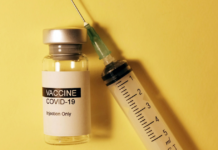The Public Health Agency of Canada ignored a proposal from a major supplier to produce face masks at the beginning of the pandemic because N95 masks were not a “top priority” at the time.
According to records obtained by Blacklock’s Reporter, a broker from industrial giant Honeywell offered an entire production line at their Mexican facility to produce N95 masks for Canada.
“If Canada needs those masks, the company was at one point yesterday open to dedicating to a line of production for Canada in their Tijuana facility,” wrote the broker.
“They have already done this for the U.S. at their U.S. facility. The Mexico facility is not part of the U.S. order. It is worth considering this.”
Officials were informed of the offer on March 19, 2020, just days after the pandemic began in Canada. The broker was quickly informed that the Public Health Agency was not interested.
“There were initial discussions, but (the Public Health Agency of Canada) rejected the Honeywell masks,” wrote Senior Policy Advisor Kelly Murdock.
“Right now N95 masks are not the top priority.”
Within weeks of the refusal, Canada was facing shortages of face masks, forcing the government to buy at inflated prices on the open market. For some orders, the government was paying as much as $10 per unit.
At least eight million N95 masks purchased in China were found to be faulty and not on par with federal standards.
It was later revealed that the Public Health Agency of Canada destroyed 2 million N95 masks from the national stockpile in 2019. While the agency claims the masks expired, new masks were never ordered.
Unlike other offers to produce masks, Honeywell has not requested federal subsidies as part of the agreement.
In the beginning of the pandemic, Canada’s Chief Public Health Officer Dr. Theresa Tam repeatedly advised Canadians against wearing masks.
“Right now there is no need to use a mask for well people,” said Tam during a March 28th briefing.
At one point Tam even warned that masks could lead to spreading the virus and said that “the effectiveness of the use of non-medical masks has not been well demonstrated” on April 1.
“What we worry about is actually the potentially negative aspects of wearing masks where people are not protecting their eyes or, you know, other aspects of where the virus could enter your body, and that gives you a false sense of confidence,” said Tam on March 30th.





















